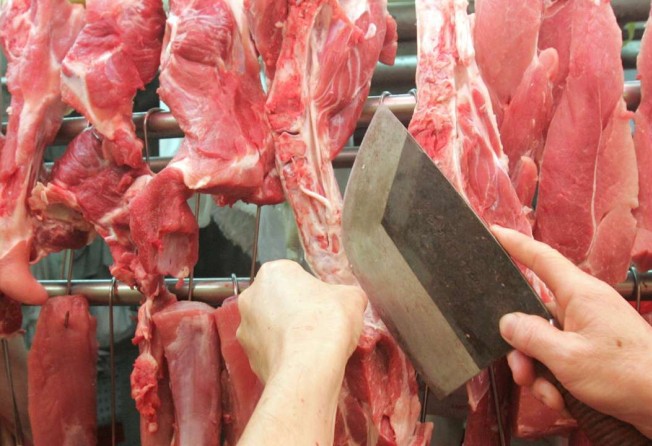Tainted pork a reminder that food safety must be taken seriously
The flaws exposed in Hong Kong’s monitoring system must be addressed to avoid a repeat of contaminated meat reaching our dining tables

Hong Kong’s food safety record may not be stellar compared to advanced countries. Our reliance on food supply from the mainland and overseas makes the need for effective regulation and monitoring all the more important. Officials in charge must do their jobs seriously lest public health is jeopardised.
The latest food scare involving tainted pork from two pig farms on the mainland has raised doubts over the surveillance mechanism. At least 40 pigs with traces of banned drugs have slipped through the system – and probably made their way to our dining tables already – after arriving from Jiangxi (江西) last week. Salbutamol and Clenbuterol are commonly used to treat asthma in humans but are also abused by farmers to enhance animal growth. Health experts have warned that such meat may cause dizziness, headaches, tremors and rapid heart rates.
It has to be asked why the pigs in question were slaughtered and distributed to the market, despite preliminary positive drug test results. The public was not alerted to the problem until 20 hours later. And when a press release finally came shortly before midnight on Friday, it carried an inaccurate list of affected retailers. Some of those contacted by the media later said they had stopped sourcing from Ng Fung Hong, the city’s major supplier of meat from the mainland. The confusion has damaged reputations of some businesses and does little to keep consumers safe from contaminated food.
The apology from food and health minister Dr Ko Wing-man is a positive response to what appears to be multiple failures in the system. Currently, animal tests are overseen by the Agricultural, Fisheries and Conservation Department, while meat distribution comes under the Food and Environmental Hygiene Department. The former was said to have reported the positive drug test results at around 10pm on Thursday, raising questions as to why the latter had not followed the existing mechanism to withhold the batch in question from slaughter pending further confirmation.
Admittedly, the first defence should come from farmers and food suppliers. But when the responsibility at the food source is not taken seriously, the onus falls on the next safeguard. As Ko admitted, there might have been blunders on more than one level. A thorough investigation to identify inadequacies is essential. Tracing the source of contamination across the border should not be ruled out either. Hopefully, it will further strengthen our food surveillance system and revive consumer confidence.